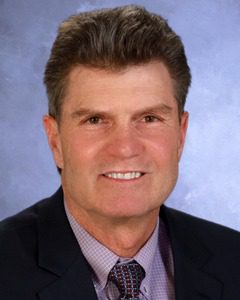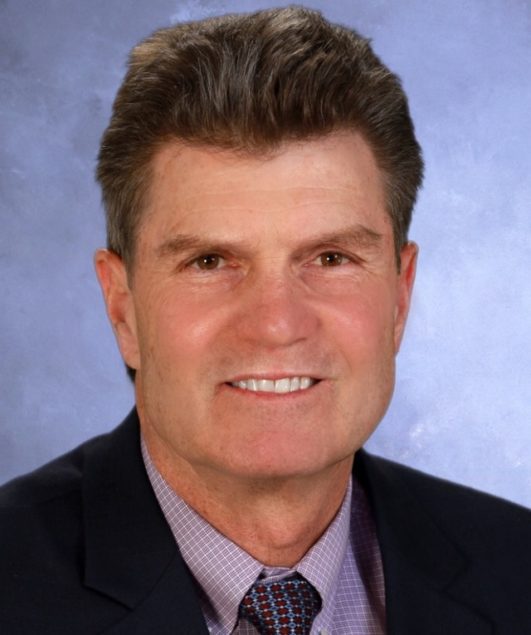
Lloyd DeVaux, president and CEO of Sunstate Bank, was invited to testify before Congress on June 28 on the challenges banks are facing in complying with the Bank Secrecy Act (BSA) and Anti Money Laundering (AML) regulations, and the need for banks and law enforcement to work together more effectively.
Although BSA/AML regulations affect all banks, Congress was particularly interested in how regulations are impacting smaller community banks.
Sunstate Bank is a $200 million bank headquartered in Palmetto Bay with three locations — Cutler Bay, The Falls and Coral Gables — while serving the local communities and international customers looking to invest in Florida.
“It is important that we talked to our legislators about how compliance issues adversely affect customers and the community,” DeVaux said. “The more banks are focused on regulation, the less they are able to focus on serving their communities. Sunstate Bank has more compliance employees than loan officers.”
DeVaux argues that most jobs are created by small businesses, but banks, including Sunstate Bank, are focusing too many resources on compliance, thereby hurting businesses that are seeking loans.
“Banks are generally leveraged 10-to-1, which means that every dollar we have in capital is $10 we can lend,” DeVaux explained. “Every $100,000 that we spend on compliance, means $100,000 that does not go to capital, and therefore a million dollars we cannot lend.”
DeVaux joined Sunstate Bank as CEO in 2014 with over 25 years of experience in the finance industry. He started as a finance industry specialist with IBM in 1989 after completing his MBA at Rollins College. He was then hired by one of IBM’s customers, Kirchman Corporation, and worked in the Czech Republic managing bank conversions. He left Kirchman to join one of Kirchman’s customer, Union Planters Corporation in Memphis, TN as senior executive vice president in charge of technology and operations.
He returned to Florida in 2001 and spent a dozen years as the chief operating officer for BankAtlantic Bancorp and then City National Bank of Florida. Prior to returning to school for his MBA, DeVaux spent a number of years in the petroleum industry with Schlumberger Limited in various countries in Europe and the Middle East. DeVaux is also a graduate of Harvard Business School’s Owner President Manager (OPM) executive program.
With almost 30 years of experience, DeVaux is no stranger to the battles banks are currently facing. Combating criminal activity and fraud needs to be a concerted effort; however, banks are getting more than their fair share of the responsibility.
“This is an issue that requires everyone’s participation,” DeVaux said. “Fraud and criminal activity is a global issue for which all countries need to be held accountable. Unfortunately, most dollars go through banks; therefore, banks are being asked to bear a large portion of the monitoring and investigating responsibilities.”
According to DeVaux, having banks conduct most of the compliance checks is a tall task, especially for small banks that can’t afford the more sophisticated automated technology required to identify suspicious patterns of activity; therefore, requiring more compliance staff.
Additionally, banks produce a lot of information for law enforcement, but are generally left in the dark in terms what information is critical to an investigation, and never even know if individuals are ever charged.
For example, in 2016, Sunstate Bank’s compliance department investigated over 7,100 alerts that were generated by the monitoring system due to inconsistencies between the customers’ profiles versus their transaction activity; yet only 15 Suspicious Activity Reports (SARs) had to be filed. DeVuax said that is a great deal of work to produce just 15 SARs.
“Banks produce a lot of information for law enforcement agencies,” DeVaux said. “However, we seldom get told what information is important or even who was arrested and indicted. If we were told what information is valuable, we would be able to focus more on the valuable activities and perhaps identify criminal activity more efficiently.”
Because banks are using so many resources to address compliance issues, DeVaux feels it is detrimental to the community and economy alike.
“Banks are having to investigate individuals thoroughly,” DeVaux said. “All businesses and legal entities are registered with the government. If a customer has accounts with five different banks, why does every bank have to conduct a separate investigation? Wouldn’t it be more efficient if we could find a way to share more information?”
Therefore, when the Financial Services Committee invited DeVaux to speak in front of Congress, he was asked to submit a 12-page report, and then read a five-minute opening statement, highlighting how excessive regulations have negatively impacted the bank’s ability to serve the community. After reading the opening statements, DeVaux, and the other three presenters, were questioned by the committee members for about two hours.
“As a community bank, we have seen an influx of new regulations over the past few years as well as additional requirements under old regulations such as the Bank Secrecy Act,” DeVaux said before Congress on June 28. “Clearly, BSA compliance is an important building block of our national security, but it is founded on principles that were developed nearly 50 years ago. Banks and law enforcement should work together to updated BSA regulations for the 21st Century.”
DeVaux feels BSA processes like the 314(a) list provided by FinCin, and the OFAC database which is updated by the Office of Foreign Assets Control are more reasonable approaches to locating potential criminals. The government provides the bank with a list of people and companies of interest, and banks have to check their database and report the information to the government, and maybe even block transactions. To ensure banks are serving the community, DeVaux says the regulatory system must be altered to be more efficiency in terms of time and resources, and banks should collectively work with the government to properly identify and charge criminals.
“Banks should be able to file a short suspicious activity report to law enforcement on a potential criminal,” DeVaux said. “The authorities and government agencies should conduct much of the investigations, which is what they are trained to do. Banks should not be acting as un-deputized law enforcement agents.”






